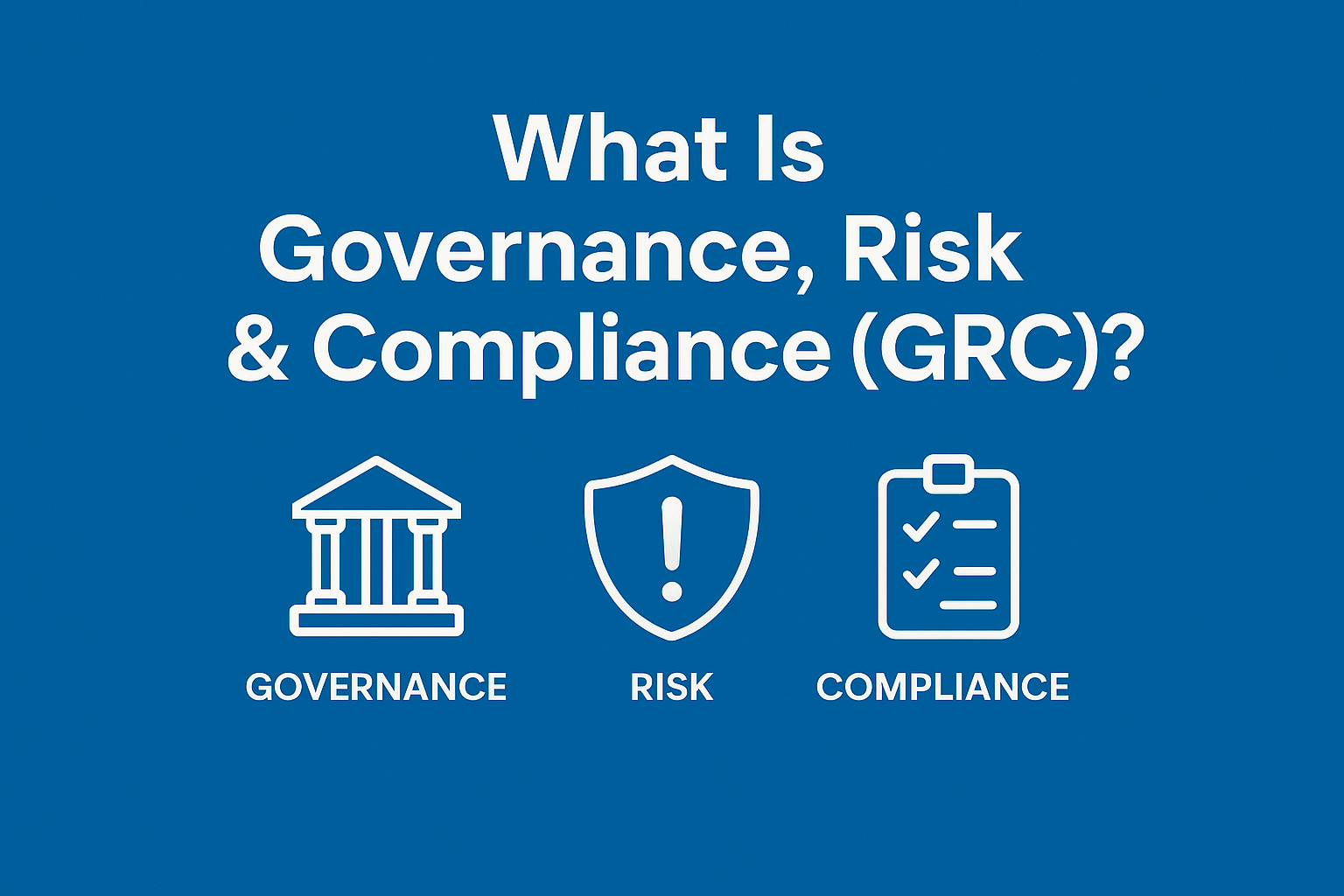What Is Governance, Risk & Compliance (GRC)? A Practical Guide for UK Organisations

What Is Governance, Risk & Compliance (GRC)? A Practical Guide for UK Organisations
In an era of increasing regulatory scrutiny and digital threats, Governance, Risk and Compliance (GRC) has become a cornerstone of responsible business practice. Whether you’re a housing association, SME, or public sector body, understanding GRC is essential for safeguarding data, ensuring legal compliance, and building operational resilience.
Defining GRC
Governance refers to the frameworks and decision-making structures that guide how an organisation is run. It ensures accountability, transparency, and alignment with strategic goals.
Risk Management involves identifying, assessing, and mitigating potential threats—ranging from financial and reputational risks to cybersecurity vulnerabilities.
Compliance ensures that an organisation adheres to relevant laws, regulations, and internal policies. In the UK, this includes standards such as GDPR, ISO27001, and sector-specific guidance from bodies like the Regulator of Social Housing (RSH).
Together, GRC provides a unified approach to managing uncertainty, maintaining ethical standards, and protecting sensitive information.
Why GRC Matters for Data Protection and Cybersecurity
Implementing a GRC strategy helps organisations:
- Strengthen Data Protection – Align with GDPR, DPA 18 and the upcoming
Data (Use and Access) Bill and reduce the risk of data breaches. - Improve Cybersecurity Posture – Identify vulnerabilities and implement controls.
- Enhance Regulatory Readiness – Prepare for audits and demonstrate compliance.
- Build Stakeholder Trust – Show commitment to ethical governance and transparency.
Best Practices for GRC Implementation
- Establish Clear Governance Policies – Define roles, responsibilities, and escalation paths.
- Conduct Regular Risk Assessments – Use tools to monitor threats and update controls.
- Integrate Compliance into Daily Operations – Make it part of culture, not just paperwork.
- Leverage Technology – Use GRC platforms to centralise reporting and automate workflows.
- Train Staff Continuously – Ensure teams understand their role in protecting data and maintaining compliance.
FAQs
What does GRC stand for?
GRC stands for Governance, Risk and Compliance—a framework that helps organisations manage risks, meet legal obligations, and operate ethically.
Is GRC relevant for small businesses?
Absolutely. SMEs face many of the same risks as larger organisations and benefit from structured governance and risk management—especially in areas like cybersecurity and data protection.
How does GRC relate to GDPR and ISO27001?
GRC frameworks often incorporate GDPR compliance and ISO27001 standards, helping organisations manage personal data securely and meet international best practices. You can find Cybersecurity Tips for small businesses here.
Can GRC help prevent cyber attacks?
Yes. By identifying risks and enforcing controls, GRC helps organisations reduce exposure to cyber threats and respond effectively when incidents occur.
Learn more about our Data Protection and Cybersecurity Services and how we support UK organisations with GRC implementation.
If you would like to learn more about how GRC Hub can support your Data Protection and Cybersecurity programme with our specialist small business GDPR and Cybersecurity support services, please contact us at hello@grc-hub.co.uk or by phone on 0113 532 7830.